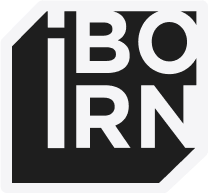Customer experience is sacred for modern business and companies are willing to put out a red carpet for their clients, pamper them and shower them with attention. The customer is always in the center, but in the attempt to provide the highest possible level of service to their clients, companies often neglect another group of people – the employees. And the employees are one of the key pillar of every successful company, if not the most important one. Companies simply can’t afford to neglect those who drive them forwards, after all, it is employees who find new clients and keep the current ones satisfied.
The client is the king, but the employees are also (marketing) royalty.

Advantages from the “employee experience”
- Companies where employees are satisfied and motivated are 57% more effective than those that shy away from the so-called "employee experience".
- Fluctuations in the workforce of companies equipped with "employee experience" programs are 87% lower than the average, t.e. not many people leave said companies.
- Companies that fly the "employee experience" banner register a growth between two and three times larger than the average.
Unfortunately, we don’t have the recipe when it comes to the employee experience. Giving your employees the most satisfying experience is no easy task. The structure that companies have to put in place in order to ensure that the ‘employee experience’ becomes in ingrained in their company philosophy depends on their company culture, but also the size of the company and the industry they work in.
If you want to establish the ‘employee experience’ in your company you will need to ensure that all execs and everybody in the HR department are aware of it and understand that the employees are the company’s biggest asset.

At iborn.net, we build our "employee experience" on these four pillars:
1. Employee journey
Focus on the entire employee journey starting with candidate experience, onboarding, first day at work, first month, first quarter, first year, first promotion, work anniversaries, and all the other milestones moving forward. This is important for the employees and helps them thrive.
2. Communication
Communication is vital. If you want to provide the ‘employee experience’ you need to make sure that you are interacting with your employees and that you take them seriously. It is important to value their opinions.
3. Processes
The processes put in place by the HR department have to be rooted in the needs of the employees with the ultimate goal to provide them a good experience.
4. Career development
Create a plan that focuses on the employees’ needs for growth and provides them assistance when needed. Employees should feel that they are supported and that the company is willing to invest in them and their future.





